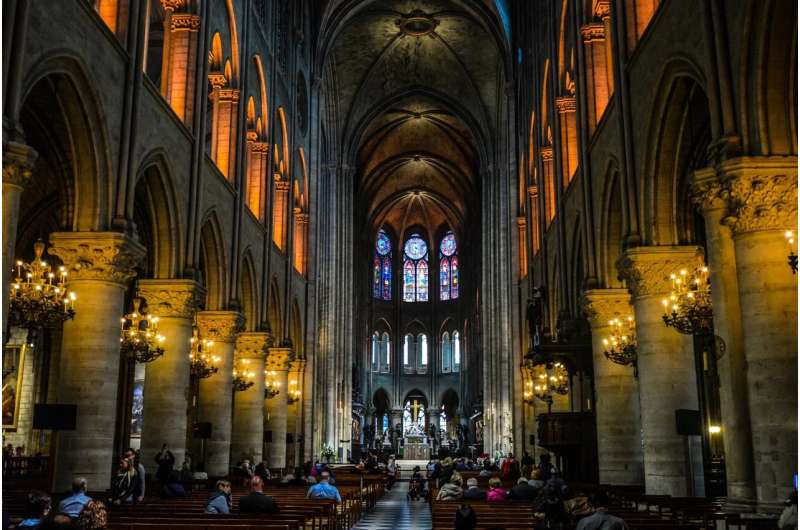
A study of chronically ill U.S. adults suggests that people who experience greater degrees of suffering also experience greater degrees of religious uncertainty and struggle. The research, which examines the link between the depth of suffering and feelings of religious turmoil, including doubt, abandonment and uncertainty regarding God’s love and power, also suggests the more religious the individual, the more acute the struggle.
The study, “Do Religious/Spiritual Resources Moderate the Association Between Suffering and Religious/Spiritual Struggles?” appears in the Journal for the Scientific Study of Religion. It relies on a three-wave panel of data examining 302 U.S. individuals suffering from at least one chronic illness. The research sheds light on suffering and religious turmoil, as well as the associated effects of religious involvement and commitment.
“We examined whether religious engagement and commitment was a protective factor against the turmoil and doubt people can face when going through terrible suffering—but the answer was no,” said Blake Victor Kent, assistant professor of sociology at Westmont College. “In fact, in the face of suffering, those in the sample who were more religious were also more likely to experience doubt and confusion about their relationship with God.”
A seven-item set of questions asked about suffering, along with seven items about religious and spiritual struggles. Sample statements about suffering included:
- “The intensity of what I have been experiencing feels intolerable.”
- “I feel powerless to stop my current experience of suffering.”
- “What I have been experiencing threatens who I am as a person.”
Sample religious and spiritual struggle items read:
- “I questioned the power of God.”
- “I wondered whether God had abandoned me.”
- “I questioned God’s love for me.”
“We found that the more highly you cherish your relationship with God, the more likely you will struggle when you go through times of suffering,” Kent said. “Research shows that religious commitments can help protect us from a host of challenging outcomes like loneliness or poorer mental health, but this study says doubt and confusion are not on the list.”
Interpreting the results, the researchers, including co-authors Richard Cowden, Victor Counted, Edward Davis, Sandra Rueger, and Everett Worthington Jr., suggested one mistake people may make is to define doubt and confusion solely as “negative” experiences to be avoided, rather than possible avenues to spiritual growth.
“While no one likes to go through suffering, it may actually be a pathway toward greater spiritual endurance and character,” Kent said, noting that most major religions anticipate suffering as an unavoidable aspect of human experience.
“The results actually make a lot of sense if you think about it. When you value your commitment to God then of course you’re going to struggle when you suffer. There is simply more at stake in a relationship characterized by a high degree of investment, and in that sense it could be an affirmation of connection to God. It’s certainly an opportunity to reevaluate how God might be present to you in the suffering.”
More information:
Blake Victor Kent et al, Do Religious/Spiritual Resources Moderate the Association Between Suffering and Religious/Spiritual Struggles? A Three‐Wave Longitudinal Study of US Adults with Chronic Illness, Journal for the Scientific Study of Religion (2022). DOI: 10.1111/jssr.12808
Journal information:
Journal for the Scientific Study of Religion
Source: Read Full Article
